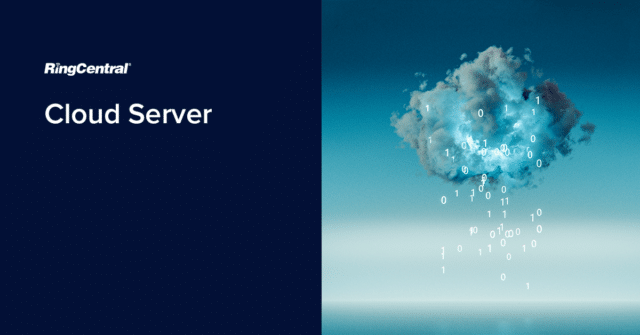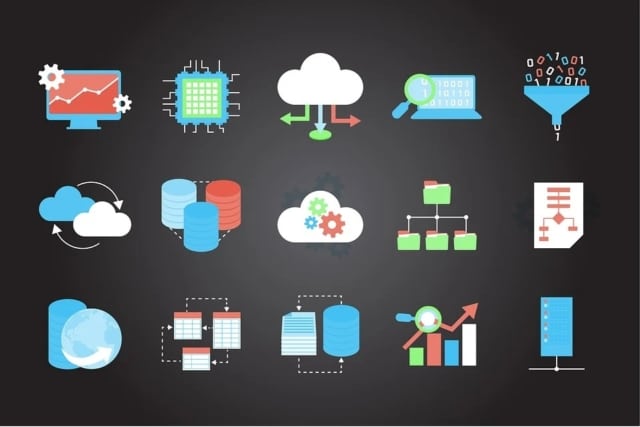
The world of computing and IT (information technology) can be a confusing one to navigate. Putting the technical aspects aside, the terminology can be frustratingly confusing for the uninitiated. And with acronyms used so often, it is even more confusing for those who do not know the terms.
Exposure to new technology in the workplace is increasing daily, and knowledge bases are constantly expanding.
But one term that almost everyone recognises – even if they do not understand the technology behind it – is the cloud. Cloud storage, cloud platforms, cloud computing, cloud environment, all these terms are now part of our language. One term that can still confuse some people though is ‘cloud server’. What exactly is it? How does it work? And what is its place in modern business?
What is a cloud server?
The basic function of a cloud server is storage. It is most often a highly powerful virtual IT infrastructure that can host data, applications, information, and other components. It can also be a physical infrastructure with virtual machines. A cloud server is created by special cloud technology software that divides or sub-divides a physical server into a multitude of layers that then act as virtual servers.
Many companies use XaaS components, such as an infrastructure as a service (IaaS) model, in order to process large workloads or store extensive data and information. They can easily access any of their functions stored on a cloud server via an interface. Cloud servers are essentially IaaS based models.
If your business is considering moving to a cloud server, then you need to look at what key features it offers.
- Your cloud infrastructure can be virtual, physical, or a hybrid cloud depending on need and uses.
- A cloud server offers the same capabilities as an on-site server.
- It will give you the capacity to not only process-intensive tasks and workloads but also store large amounts of data and information.
- Depending on your requirements, you can choose to pay for cloud server use on a monthly or yearly basis, or just for the times you require it (pay as you go).
- You can also opt to choose a shared cloud hosted plan that is convenient while offering scalability when needed.
How does a cloud server work?
The easiest way to think of the cloud is not as one single structure or location, but as a combination of electronic structures that may store data, information, applications, and more across different locations and computers.
As with other aspects of cloud computing and cloud services, a business opts to rent space on virtual servers in the cloud, thus saving on space at their premises and also money. These financial savings come in the way of removing the cost from capital expenditure and avoiding expenses for maintenance and updating. Small businesses have to be especially careful as to expenditure.
This arrangement also suits the provider as they benefit from the economy of scale: providing a similar service to multiple clients.
Storage resources are probably the most common use of the cloud, but with increases in bandwidths, speeds, and falling costs, the cloud has also been one of the main factors in the growth of anything as a service (XaaS).
With the ability to use the cloud to not only store data and information but also to host applications, software (SaaS), unified communications (UCaaS) platforms and more, the possibilities are endless.
Another beauty of the cloud is that you are not limited as to the amount of data you can store or actively use, as you would be with conventional hardware options. And rather than paying for anything outright (as you would have done with old-fashioned software and apps), you can rent or lease solutions on a monthly or as-needed basis.
With so many aspects of this infrastructure, it is worth spending some time to learn more about the cloud.
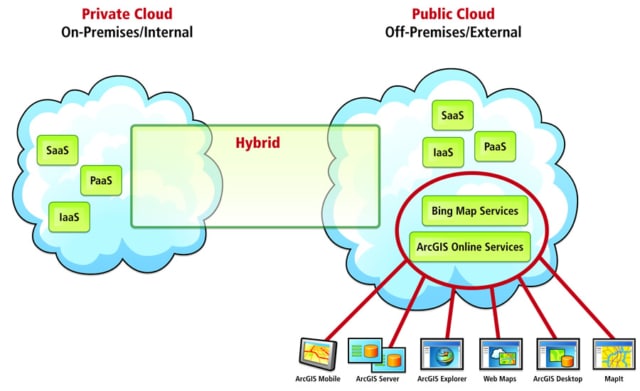
What are the types of cloud server?
There are basically two types of cloud server: physical and logical.
Logical
We classify a cloud server as logical when it is delivered through server virtualisation. With a logical cloud server, the physical server itself is distributed into two or more (depending on needs, model, etc.) logical servers. Each logical server in this system will have its own operating systems—such as Linux, user interface, and apps. But they will share some physical components from the ‘parent’ physical server.
Physical
While you still access your physical server remotely via the internet, it is not shared or distributed. It is usually called a ‘dedicated cloud server’ or ‘bare-metal’.
Why switch to a cloud server?
There are several benefits if you decide to switch from a traditional on-site server to a cloud-based server. Your company has to consider how great these benefits are for your model and whether it is worth making the switch.
Cost-effectiveness
The most obvious benefit of switching to a cloud server is that you will save money. From an accounting perspective, you are switching from capital expenditure on the cost of buying, installing, and maintaining a server on-premises. Instead, any costs are switched to operational expenses.
You are also avoiding the potential costs of add-ons and updates, as most of these will come included in any package you sign up to. And, beyond actual savings, with a cloud server package, you tend to get ‘more bang for your buck’. Cloud servers are faster, more stable, and generally more secure.
If you compare costs, you will see that a cloud-based server will always provide more resources and faster service compared to the traditional model. If you are running cloud-based websites, they will also run faster than a legacy model. Traditional web hosting may be an important factor to you, even if only running a series of WordPress sites.
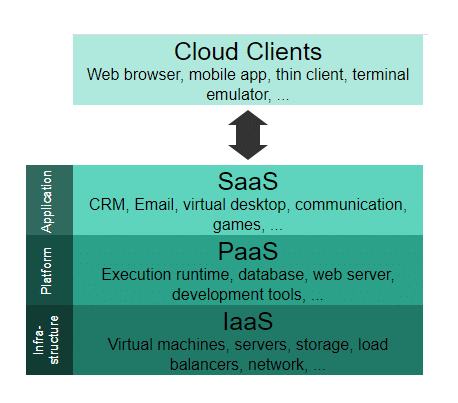
Scalability
Your computing resource needs can change, often at short notice. An on-site single server offers only limited capacity if you need to scale up your usage. Using cloud servers offers almost unlimited scalability in all factors. Need extra computing power for a special project? Find it with a click of a button.
Stability and security
If you are using cloud servers, then you have better stability for any work you are doing. If there is an issue with an app or software in the cloud server, then it is isolated from your internal systems. Your cloud server cannot be affected by other cloud servers, so issues such as another user overloading their server simply do not affect you.
And, if you follow good security protocols and install systems that meet industry standards, then your data and information is more secure on a cloud server than an in-house one.
Integration
With the variety and diversity of tasks undertaken by so many companies these days, good integration is essential for efficient working. The way your cloud servers are networked means that you have uninterrupted levels of communication and the ability to quickly deploy apps and software as and when they are needed.

How to choose the best cloud server
Cloud computing is now a large and valuable market. Digital transformation is one of the leading priorities for many companies worldwide. In 2008, the market was worth a little under $6 billion. Jump forward to 2020, and that market is now worth $371.4 billion, and is expected to reach $832.1 billion by 2025.
So, the market is not only extraordinarily lucrative but is also filled with a bewildering range of companies and options offering cloud computing services.
If your business has made the decision to switch to cloud servers, what should you be looking for? What factors will influence your decision as to which server is going to be the best fit?
Infrastructure
a) Data centre
Look at how the provider has its data centres—or data centers in some countries—set up. They should have a network of data centres in different locations. You should be able to utilise the data centre closest to you so that your network is low-latency.
A provider who offers a wide range of data centre locations is also offering peace of mind. If there are any major disruptions with the centre you unusually use, then it will not affect you and you can enjoy service continuity and good functionality.
A provider with a strong and reliable network of data centres is offering a foundation of reliability and continuity. You also want one that has Application Programming Interface (API) as part of their infrastructure.
b) High-performance computing (HPC)
In modern business, the last thing you want is to have to wait for data or for tasks to be completed. This is especially true when you have multiple users on your network. With an on-site server, there is the possibility that multiple users can lead to a slowing of operations.
This is where HPC servers come into play. If your provider is using HPC servers, then you know that performance levels will not slip in real-time, even when you are putting major demands on the system or have multiple users accessing the system.
Always ask any potential providers whether HPC servers are an integral part of the infrastructure. This can be crucial if you intend using PaaS (Platform as a Service).
c) Security
This will always be a major factor to consider. After all, there is a very high probability that you will be storing sensitive data on your cloud server. Customer details (possibly including banking and financial information), proprietary software or apps belonging to your company, financial and business plans of your company that could benefit competitors, etc.
What you are wanting from your provider is a high level of security at the three crucial levels: network, host, and physical set up.
Enquire as to what advanced security they offer. Do they have multi-factor authentication as standard? Do they have Intrusion Detection Systems (IDS) or Intrusion Prevention Systems (IPS)? Do they offer high-grade enterprise-level firewalls? And how strong are their access control systems and control panels?
A provider that offers all of these as standard, and provides systems that meet the various industry benchmarks, is one that can go on your shortlist.

Backup
All providers will offer some level of backup, that goes without saying. But how much backup they offer and how responsive and quick it is will be another major factor in any decision you make.
Another crucial aspect is how often they back up your information. If a provider is not backing up data at least daily, then they are not worth considering.
Most of the leading providers in the market will offer backup for 100 days, but will also offer options to extend as needed. Make sure to ask about security levels during the backup process, and how easy recovery and restoration is.
Business continuity and disaster recovery (BCDR)
Even the best service may encounter issues. Natural disasters such as earthquakes are one form of event that can potentially disrupt your service. There is little that can be done about that actual event, but how able is your provider to reinstate your service quickly?
Your provider should be able to discuss with you the potential risks to service that they have identified, and what risk management and mitigation policies they have in place to get you back up and running in the shortest time possible.
Other factors that can show that your provider has a good BCDR policy are replication of data at various different points and what redundancy of infrastructure they include in their architecture. BCDR should be a standard feature of any contract you sign to and should not have additional charges.

Uptime and downtime
There may be occasional periods of downtime in your service. But how long these are or how often they happen can have major detrimental effects on your business. Unplanned outages can cost you money and time. The best high-performance providers guarantee 99.999% uptime, which equates to six minutes or less downtime per year.
Service level agreement (SLA)
When considering your cloud service provider, it is not only about the technical aspects of the service. The SLA offered by the provider should also play a major part in any decision.
This lists the standards of service and T&Cs they offer. It should also list any recompense if service falls below those promised standards.
Support levels
One indicator of how good a company is in any sector is the level of support they offer. And that is perhaps especially true within IT, and with cloud server providers. Do they offer support for all incidents or only certain defined ones? Is their support service 24/7 or limited to their working hours?
What you need may be defined by how you work. If your service is 24/7, then you will want 24/7 support available. How they deliver support is also important. Do they offer multiple-platform support via live chat, email, and phone calls?
Another aspect of support you may want to look for is how much help they offer when you are making the transition to the cloud. Do they offer full support with the migration of data, etc.? Do they even offer some sort of training to your in-house IT staff?
Pricing
There’s a good reason we have left pricing to later in the list. While cost-effectiveness is important, cheaper does not mean better, especially when dealing with the integrity and security of important information and data. But equally, the most expensive option does not necessarily mean it is the best option.
Carefully consider the various factors we have listed and then make your own list in order of priority. Then, seek a number of comparative quotes that fit your list. Do not be afraid to play one provider against another to get a better price. And look to see if any of them offer a free trial so you can be sure they are a good fit.
Also, look for flexibility in pricing plans offered by the providers. Is it easy – and cost-effective – to add new services if you need them? Do they have a strong refund or compensation policy if you are unhappy with the service they provide?
Private servers
It may be the case that you need a private cloud server as part of any package. Your company may handle extremely sensitive and confidential data, and you require dedicated and fenced-off resources that will not face interruption from other users.
Almost every customer has unique needs when it comes to their cloud server services. The provider that listens to those needs and who can provide private servers and customisation is one that is ticking your boxes. Public cloud systems may be good for some processes, but generally, a private cloud will be better.
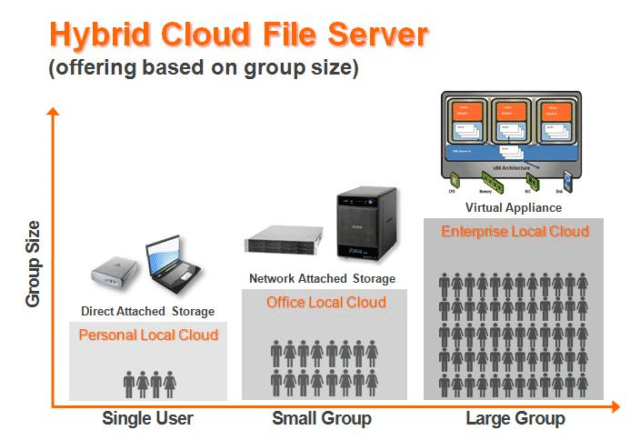
What are the challenges of cloud servers?
The challenges of changing to a cloud server network define which one is best for you. You should look at each challenge from two different directions. Think about what you need in each area listed below, and consider the challenges that pose.
Security
It is only recently that cloud security has upped its game. Before 2018, there were lots of worries as to how secure cloud systems were and if data security measures offered enough protection.
You want your data and information to be 100% safe. Make sure that there are sufficient security measures in place and that both you and the provider comply with all laws and relevant standards.
This also includes password security, especially when you have multiple users accessing your system. If you don’t have multi-factor authentication, then you may encounter security breaches.
Costs
Although changing to cloud-based computing switches your expenses from capital expenditure to operating expenses, you still have to consider what costs you will incur. Will what you invest in the cloud provide sufficient returns? Is expense justifiable if a project is short-term?
It may be that you will only see a significant ROI in the longer term, particularly if you invest too early in scalability and larger bandwidths. Consider whether the investment can be gradual. Try swimming in the shallow end before moving to deeper water.
Reliability and downtime
If you do not choose your provider wisely, you may face reliability and downtime issues. If your provider is not reliable and accessible when you need them, then problems may not get resolved swiftly.
Downtime can cost your company money. If your provider does not guarantee a very high level of uptime, then you lose working time. That can also lead to your own clients becoming dissatisfied with your service.
Prohibitive contracts
It can sometimes be easier to enter an agreement than to leave it. Be careful if a contract has what is known as ‘vendor lock-in’, as this can mean it will be difficult to end any agreement or it could cost you a lot of money.

The takeaway
Moving to cloud servers makes good business sense and often good economic sense. But it is not a decision that should be hurried without careful consideration of all relevant factors. Take plenty of time to go through what your own company’s needs are and what technical and financial factors are most important.
It is also worth noting that the benefits of cloud-based working extend to the public sector.
Making the move to multi-cloud systems is something that should be approached with both caution and enthusiasm. Look at all options before making any decision.
Never go for the first cloud provider you look at. Look at what different providers offer, and the terms and conditions that are included in any contract. You may go with a major provider such as Google, Microsoft Azure, or Amazon Web Services (AWS) or a smaller, more independent one. AWS offers trusted services such as VMware Cloud, which may be just what you need right now. Choose a provider that will enable your business to grow while also growing their service with you.
Originally published Jan 13, 2021, updated May 15, 2021

